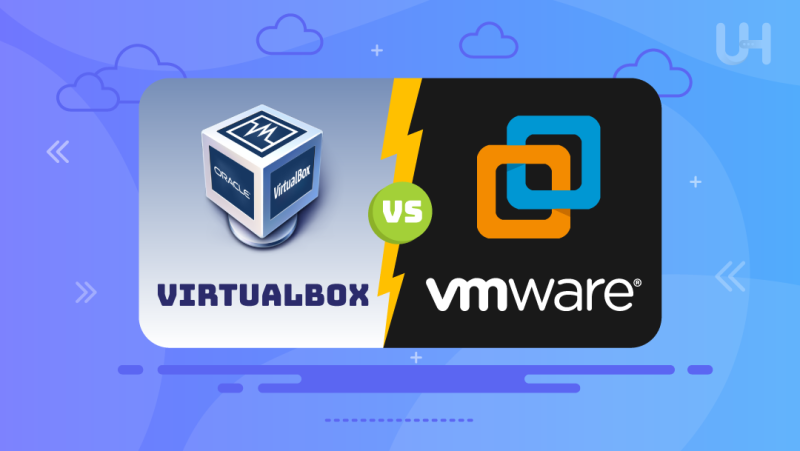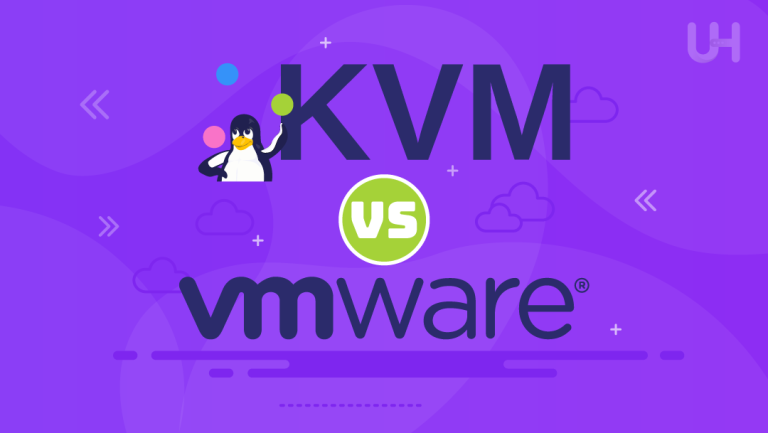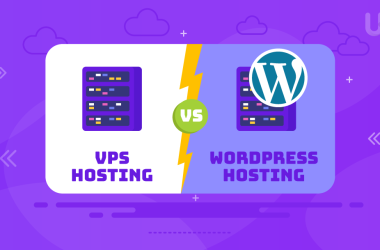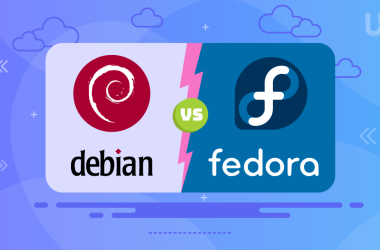In virtualization, two names come forward: VirtualBox vs VMware. Of course, these are indeed powerful tools, some of the very best, that IT professionals, developers, and technology enthusiasts use to create and control virtual machines. Now, based on these two choices, which one is better?
In this article, we will provide an in-depth comparison of features, advantages, and disadvantages between VirtualBox and VMware, based on which of these pieces of virtualization software suits your needs.
What is VirtualBox?
VirtualBox is a virtualization tool, open source, and developed by Oracle. It became very famous due to its flexibility and the many supported guest operating systems, including, among others, families like Windows, Linux, and macOS. For users seeking reliable macOS hosting solutions, VirtualBox provides an accessible option for running macOS in a virtual environment. VirtualBox is available free of charge and, therefore, becomes quite an interesting option for many people and institutions needing a low-cost virtualization solution. Though VirtualBox is free, it is still one of the most powerful virtualization packages around, targeting both novice users and experienced professionals; therefore, it is one of the most popular choices available in the market.
Key Features
- Cross-platform: Runs on Windows, macOS, Linux, and Solaris hosts.
- Guest OS Support: This includes most guest operating systems.
- Snapshot Capability: It means allowing the user to save the state of a virtual machine and then return to that state.
- Seamless Mode: This integrates guest applications into the host desktop.
- VirtualBox Extension Pack: Provides support for USB 2.0/3.0 devices, RDP, and PXE Boot.
- Virtualized Networking: Offers complex networking configurations, including NAT, bridged, and host-only networking.
Advantages
- Good Value for Money: VirtualBox’s free and open-source status makes it accessible to anyone, from hobbyists to enterprises. This is a great cost benefit for a small business looking to build a brand or a developer—this virtualization powerhouse has no big price tag.
- Flexibility: The software is highly flexible and can run many guest operating systems. Given its high level of flexibility, it is very suitable for testing various environments or simulating multiple OSs on a single machine.
- Ease of Use: Implementation within VirtualBox is user-friendly and lets even beginners easily create and manage virtual machines. The process of building and configuring a virtual machine is easy, and one can easily understand the options since they are clearly guided.
- Large and Active Community: As an open-source project, VirtualBox has many people forming a large and active, committed community of users and developers. This community support means that various resources, forums, and performance plugins are available to make the user’s experience with VirtualBox worthwhile.
Disadvantages
- Performance Limitations: Even though VirtualBox is so flexible, it will still need to match some of the enterprise-grade VM commercial virtualization solutions in terms of performance. For instance, using resource-consuming applications or numerous VMs operating concurrently could greatly improve the user experience.
- Limited Enterprise Features: Although VirtualBox is feature-packed, it lacks some of the highly developed features that other premium virtualization software, such as VMware, possesses. For instance, enterprise-level management tools and advanced networking features are restricted under VirtualBox.
- Resource Allocation: This inefficiency with resource management might be core to VirtualBox’s struggle with resources versus VMware, especially in the case of multiple VMs. This may increase CPU and memory use, affecting system performance in the long run.
What is VMware?
VMware offers virtualization software at par, both free and commercial. With a range of products like VMware Workstation, VMware Fusion, and VMware vSphere, there is somewhere to go from personal use to large deployments in an enterprise. It is known to be high-performance, has advanced features, and has robust security. Hence, VMware mainly remained the choice of professionals and businesses. Although, more often than not, VMware solutions come with a price tag, unlike VirtualBox, the investment is justified given the abilities and enterprise-grade features of the software product.
Key Features
- High Performance: Specced for performance-demanding applications.
- Enterprise-Class Security: Advanced features in the security to protect virtual environments.
- Comprehensive Support: Detailed documentation with enterprise support.
- Snapshot and Cloning: These are two of the most important tools to manage the state of a virtual machine.
- Cloud Service Integration: This paves the way for easy and rigorously customizable integration with cloud offerings by VMware.
- Better Graphics Support: Better 3D graphics and the enhanced importance of graphical processing units are manifest in virtualization.
Elevate Your Virtualization Experience Today!
Looking for reliable and high-performance VM hosting solutions? UltaHost offers cutting-edge VM hosting services catering to individual and enterprise needs. With advanced infrastructure and unparalleled support, you can ensure your virtual machines run smoothly and efficiently.
Advantages
- High Performance: VMware has been designed to execute high-performance functions. It is great for running applications and workloads of high intensities. Its efficiency in allocating resources guarantees that virtual machines run smoothly, even under heavy loads.
- Advanced Features: VMware offers some advanced features that are useful in an enterprise environment. They include advanced network options and better or enhanced support for virtualizing GPUs. Cloud storage VPS services also offer flexibility and scalability by allowing users to move data easily between on-premises infrastructure and public cloud services.
- Robust Security: All VMware products have strong safety features, such as encryption, secure boot, and isolation of virtual machines. These erstwhile requirements are imperative for organizations anxious about the security of their virtualized environments.
- Professional Support: It includes deployment options, detailed documentation, technical support, and a strong user community. Considering that a business’s critical operations rely on VMware, such professional support is invaluable.
Disadvantages
- Cost: The most significant drawback of VMware is the cost. Sure, advanced features and enterprise-grade service come at a price, but it’s rather expensive, so not every small business owner or even a single user can afford this.
- Complexity: While VMware comes with power, it also means a slight increase in complexity over VirtualBox. For example, users who haven’t used virtualization software before will find VMware’s interface and feature set more difficult to use.
- Resource Usage: Although VMware is lean on resource usage, it consumes more than does VirtualBox. As such, users may find it a little tricky to get the most out of VMware on low hardware.
VMware vs VirtualBox: Comparison

When choosing between VirtualBox vs VMware, decisions have to be made based on performance, cost, ease of use, and a raft of features. Both platforms have pros and cons that target several classes of users and applications. The detailed comparison of VirtualBox vs VMware table shown below will enable you to understand their differences:
| Criteria | VirtualBox | VMware |
| Performance | Generally suitable for less resource-intensive tasks. Performance may lag with multiple VMs or heavy workloads. | Optimized for high performance; better suited for resource-intensive applications and multiple VMs. |
| Cost | Free and open-source, making it a cost-effective choice for individuals and small businesses. | Commercial products often require a paid license, which can be costly but offers advanced features and support. |
| Ease of Use | User-friendly interface; easier for beginners to set up and manage virtual machines. | More complex interface with a steeper learning curve but offers more control and customization. |
| Features | Supports a wide range of guest operating systems; includes features like snapshots and seamless mode. | Offers advanced features such as enhanced graphics support, cloud integration, and enterprise-level tools. |
| Security | Basic security features: lacks some of the advanced security measures available in VMware. | Provides robust security features including encryption, secure boot, and isolation of virtual machines. |
| Community and Support | Strong community support with extensive documentation and forums. | Professional support is available, including detailed documentation and technical assistance, which is ideal for businesses. |
Conclusion
While VMware or VirtualBox is a matter of your choice, the individually notable difference rests in your needs and resources. If you are looking at cost-effectiveness, flexibility, and ease of use, then go with VirtualBox. In the case of performance, advanced features, and enterprise security, VMware takes the better lead but is more expensive. By understanding what you need, VirtualBox vs VMware, and the strengths and limitations of each, you can understand which platform best serves your requirements in terms of virtualization.
For robust and scalable virtualization, consider KVM VPS hosting from UltaHost. Our KVM VPS solutions offer dedicated resources and superior performance, ensuring your virtual environment operates at its best.
FAQ
What is the main difference between VirtualBox and VMware?
VirtualBox is a free and open-source virtualization platform, while VMware offers advanced features and enterprise-level support at a cost.
Can I use VirtualBox for enterprise environments?
Yes, but VirtualBox may lack some advanced features and performance optimizations found in VMware, which is often preferred for enterprise use.
Is VMware worth the cost compared to VirtualBox?
VMware’s cost can be justified if you need advanced features, high performance, and professional support. For general use or limited budgets, VirtualBox is a good alternative.
Which virtualization software is easier for beginners?
VirtualBox is generally considered more user-friendly and easier for beginners to set up and use compared to VMware.
Does VirtualBox support all guest operating systems?
VirtualBox supports a wide range of guest operating systems, but VMware often provides better support for specific enterprise-level configurations.
How does VMware handle security compared to VirtualBox?
VMware offers advanced security features like encryption and secure boot, whereas VirtualBox provides basic security options.
Can I integrate VMware with cloud services?
Yes, VMware offers seamless integration with cloud services, which is a feature not as developed in VirtualBox.













